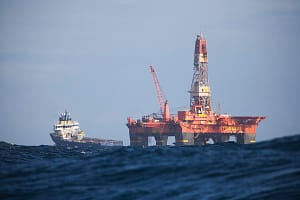Exploration and production in the upstream Oil & Gas (O&G) industry are facing a number of challenges. There are increasingly complex issues constraining traditional processes, and the sector is rising to meet these challenges with innovative strategies and increased use of sophisticated tech.
Along with the extreme volatility of the price of crude oil following 2020’s plunge in value and the urgent need to address climate change, the industry is transforming fast.
Oil and Gas industry is meeting the future through innovation and disruption
These are, of course, extremely challenging problems but the O&G industry must see them as opportunities. Energy transition is inescapable, and more than that, it’s what we should all be aspiring towards. Climate change represents an existential threat for future generations, and there is no better time to grasp the innovative opportunities now present and make fundamental changes the way we power our world.
Challenges offer endless opportunities to explore new ways of working and to find new ways to continue production, all the while bringing costs down and contributing to a better environmental future.
Some of the world’s most fundamental shifts have taken place during times of great global stress. The tragedy of the World Wars in the 20th century, for example, pushed technology to new heights, and transformed everything from medicine to the space race.
In the time of an ongoing global pandemic and with a changing consumer demand for fossil fuels, an innovative response is vital for the upstream sector.
Pioneering sea-changes in extraction and production
Let’s look at Total Gas & Power as a random example, which is the biggest provider of industrial energy in the UK. The company prides itself on its pioneering ambition and focuses research and development on four areas:
- Development of operations that directly contribute to the overall shift towards responsible energy.
- Preparation for tech breakthroughs that will be ready in time to capitalise on changing opportunities.
- Working with partners in order to draw on specific skills.
- Optimisation of research and development resources, including people, infrastructure and regional centres of excellence.
These ambitions are centred around strategic investment and programmes constructed to find effective, safe and future-proofed solutions across everything from Exploration & Production, Refining & Chemicals and Gas, Renewables and Power.
This is just one energy provider, but these are typical of the renewed approach to innovation, research and development that marks out the industry. Upstream Oil & Gas is continuously striving to perfect the technology to meet consumer demand and work towards a responsible future.
New ways to collect, use and process data
Improving the exploration and production methods used by energy companies is a priority. Industry research projects focus on innovative ways to collect geophysical data so that subsurface imaging shows the reality of the landscape as much as scientifically possible.
According to a survey from PwC, O&G upstream businesses anticipate greater revenue growth than many other sectors. And this is no longer dependent solely on the price of crude oil. Rather, O&G has been redefining production and exploration possibilities for a number of years.
Technology means it’s now possible to extract fossil fuels in ways that simply weren’t available just ten or 20 years ago. For example, the extraction of gas from shale or oil from bituminous sands are transforming the marketplace in North America. And yet they were considered too technologically challenging and expensive in the past. In this way, innovative approaches are transforming the industry.
There has also been a recovery over the last few years in the availability of oil thanks to new drilling techniques. Take the Permian Basin as an example. This region covers around 300 miles around eastern New Mexico and west Texas in the US. While oil production began here way back in 1921, its oil wells stopped pumping around ten years ago.
However, the introduction of fracking (hydraulic fracturing) has brought them back to life, and the basin produces 14% of the country’s total oil. Other drilling innovations that are affecting production include improvements to horizontal drilling, including drilling multiple wells at one site simultaneously.
Reorganising an industry to meet a sustainable future
Since the introduction of the International Maritime Organisation regulations in 2020, which mandate desulphurisation across the marine sector, O&G operators have had to reorganise their business along other lines too. Sustainability and innovation go hand in hand for an industry that operated for years within its very own ecosystem.
This has led companies including the likes of Shell and BP to announce decarbonisation and sustainability targets. They, and other O&G industry companies are initiating projects and programmes dedicated towards these challenges. Sustainability is now within their future strategies and is no longer a buzzword.
Tech companies and digital developers have also been working on developing all kinds of autonomous platforms to slash costs and increase operational performance. The areas that will play a major role in reshaping the industry in a sustainable way include:
- Digital transformation into a circular industry.
- Developments in autonomous processes and extraction.
- Strategic risk-averse implementations.
- Enhancing operational efficiency while cutting costs.
As well as all of the technological and digital innovation going on behind the scenes, in some ways the O&G industry must look at ways to win hearts and minds. Climate change and environmental issues are uppermost in the world’s consciousness now, particularly during this global pandemic.
Upstream O&G must adapt in many fundamental ways and communicate exactly how it is doing so. International Energy Companies like BP, Shell, Total and Equinor have all communicated their strategies, their success will be measured by implementation or a more popular waying of saying it “walking the talk”. There is much more pressure now to prove accountability and measurability of any environmental pledges. This will only continue into a future that is aware of just how much global energy must adapt to meet a sustainable and energy-efficient future.






Leave a Comment